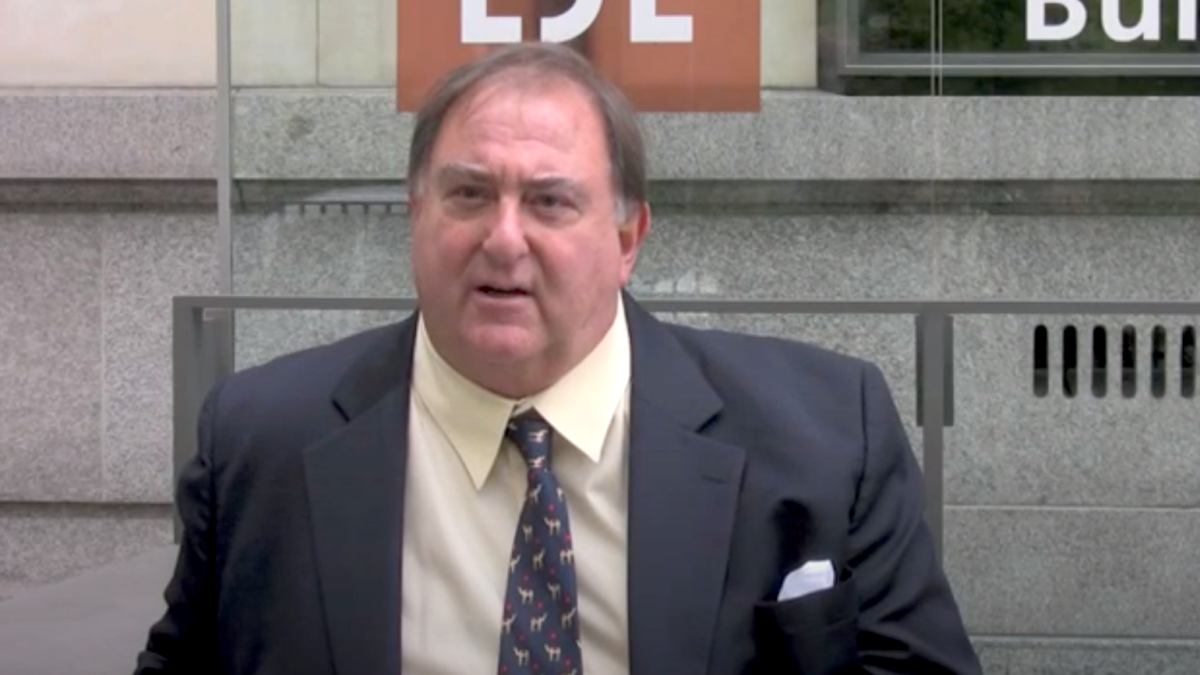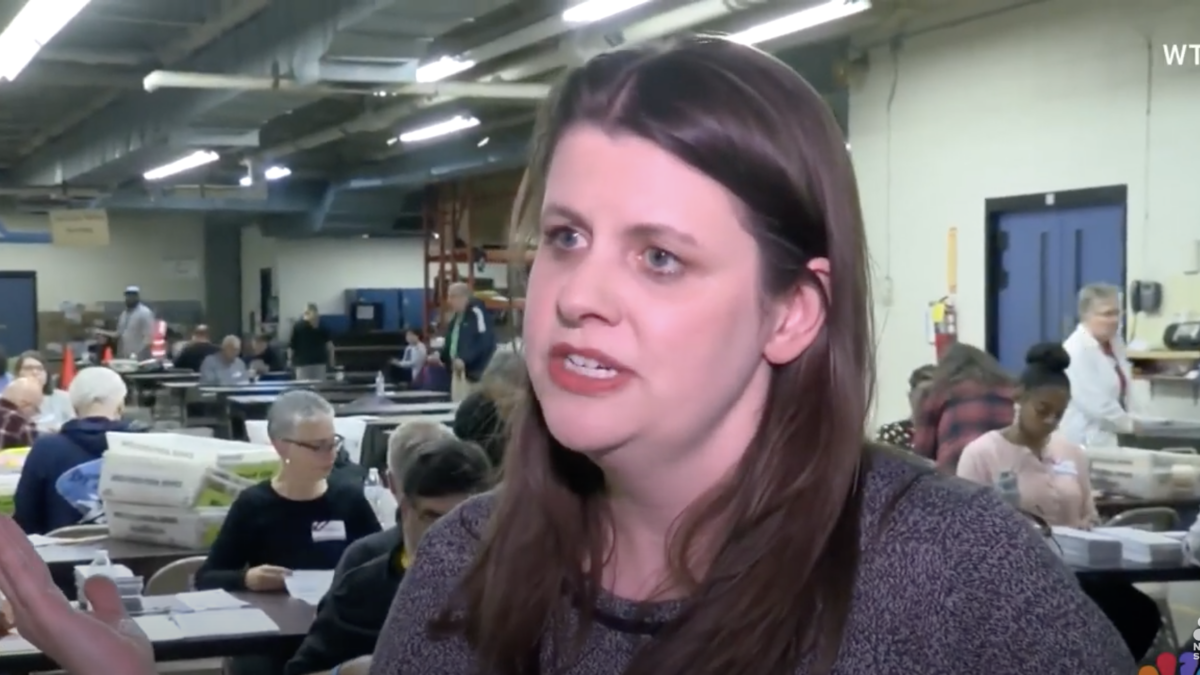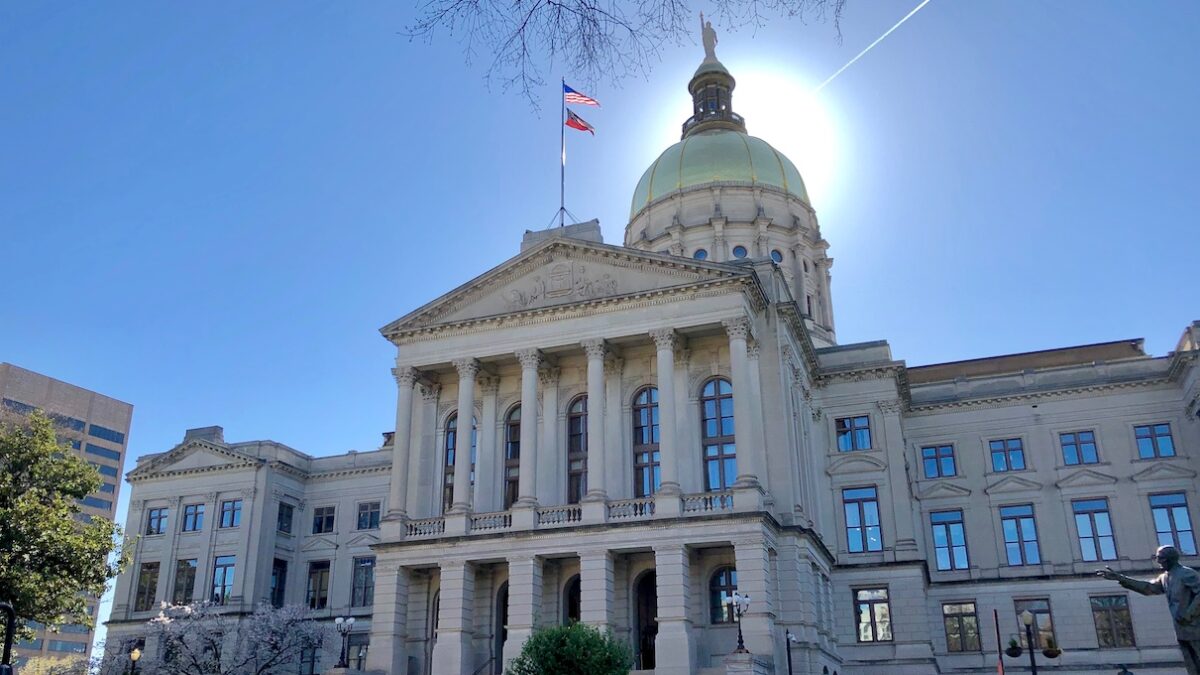Stefan Halper may have sidestepped a congressional subpoena and escaped charges for making false statements to the FBI, but his comeuppance may be coming soon, recent court filings suggest.
Soon after the FBI launched Crossfire Hurricane in the summer of 2016, longtime confidential human source Halper officially joined the government arm of the Russia-collusion hoax. Meeting with FBI agents on August 11, 2016, Halper falsely claimed to have witnessed the Russian-born British citizen Svetlana Lokhova leave a 2014 dinner at Cambridge University with Michael Flynn. According to the FBI’s summary of its interview with Halper, Halper also claimed to be “somewhat suspicious of LOKHOVA,” stating he believed “LOKHOVA’S father may be a Russian Oligarch living in London.”
While at the time of the Cambridge event, Flynn served as Barack Obama’s director of the Defense Intelligence Agency, by 2016, when Halper framed Flynn as embroiled in an intrigue with Lokhova, Flynn had changed to the other side of the political aisle, serving as an adviser to Donald Trump’s presidential campaign. And shortly after Halper told the FBI of Flynn’s supposed connection to Lokhova, the bureau opened an investigation of Flynn under the umbrella operation of Crossfire Hurricane.
However, contrary to Halper’s representation to the FBI, he had not attended the 2014 Cambridge University dinner and thus could not have witnessed any interactions between Lokhova and Flynn. And although Halper claimed Lokhova had jumped into a cab with Flynn and then joined him on a train ride to London, nothing of the sort occurred.
The false fingering of Lokhova as a Russian honeypot soon made the news, causing Lokhova to sue Halper for defamation. She filed that case too late, though, leading a federal court to dismiss the lawsuit as barred by the statute of limitations. Lokhova then filed a second lawsuit against Halper, alleging that Halper defamed her in pushing her publisher to drop the deal it had with Lokhova to write a book about Halper and SpyGate and that he intentionally interfered with that contract.
Halper’s lawyer pushed for the dismissal of Lokhova’s second lawsuit. Last month, the same federal judge who tossed Lokhova’s first lawsuit denied Halper’s motion to dismiss, ruling the second case against Halper could continue. Significantly, in rejecting Halper’s motion to dismiss the lawsuit against him, presiding federal Judge Leonie Brinkema noted that documents uncovered since Lokhova’s first case indicate that Halper “may have made clear misstatements to the FBI” and may be responsible for “some falsehoods” about Flynn and Lokhova.
While Brinkema did not identify the “documents” to which she was referring, it was the FBI notes of the Halper interview from August of 2016 that provided the most concrete proof to date of Halper’s role in launching the Lokhova-honeypot narrative. Further, that Brinkema referenced the notes and Halper’s apparent responsibility for “some falsehoods” about Lokhova and Flynn proves significant because it suggests that the federal judge finally understands the seriousness of Lokhova’s case and her allegations.
That the federal court in Virginia both rejected Halper’s attempt to toss Lokhova’s second lawsuit and also acknowledged that an evidentiary basis for her claims exists means there may finally be a forum where Halper is held accountable. And the probability of such a comeuppance became even strong over the last month as Halper’s attorney launched a scorched-earth “defense” of the case. This is sure to bristle Brinkema, who “put[] both counsel on notice” that she “expects this case to be properly litigated by counsel, that I want the rhetoric kept cool, both in terms of the pleadings, the written pleadings, and oral argument.”
Notwithstanding the clarity of Brinkema’s command, a series of court filings from Friday reveal Halper’s attorney took no heed of the warning. For instance, Lokhova’s attorney, Leslie McAdoo Gordon, was forced to file a protective order because Halper’s lawyer hit McAdoo Gordon, who is a sole practitioner, with discovery demands in the midst of an out-of-state federal felony criminal trial. As McAdoo Gordon’s memorandum details, the Virginia court directs attorneys to the American College of Trial Lawyers Code of Pretrial and Trial Conduct, which instructs lawyers to “schedule pretrial events cooperatively with other counsel,” “respect[ing] the legitimate obligations of colleagues and avoid disputes about the timing, location and manner of conducting the event.”
Non-lawyers or non-litigating lawyers may not appreciate the point, but Brinkema will, and such gamesmanship won’t go well for Halper’s attorney, especially in light of the second warning Brinkema gave the attorneys when they appeared before her last month.
“My biggest concern about this case is making sure that it remains focused, and that the discovery is not a ridiculously broad discovery. I’m not going to permit that,” the federal judge told the attorneys.
Yet Halper’s lawyer served 15 pages of interrogatories on Lokhova that included not just irrelevant questions but continued to imply she served as a Russian spy. “Identify any Russian intelligence member with who you have discussed Stefan Halper and state when and where this occurred,” one discovery request asked. “Identify any Russian intelligence member with whom you have discussed the 2016 U.S. Presidential election,” another inquiry ran.
The irony of these interrogatories abounds when one remembers that Sen. Chuck Grassley, R-Iowa, previously asked the Office of Net Assessments (ONA) for the Department of Defense for details on a contract awarded Halper in September 2015 that “list[ed] former Deputy Foreign Minister for Russia, Vyacheslav Trubnikov, as a consultant and advisor to a paper delivered to ONA.”
“Trubnikov is a known Russian intelligence officer, who was listed by Christopher Steele as a source in the now-debunked Steele dossier, which was used as a predicate to obtain a Foreign Intelligence Surveillance Act (FISA) warrant to surveil Trump Campaign adviser Carter Page,” Grassley wrote, before asking if “Halper paid Trubnikov for his assistance in gathering information for this paper, or in what capacity Professor Halper interacted with Trubnikov during the course of performing work for this contract.”
While Lokhova’s attorney will likely object to Halper’s irrelevant interrogatories, a cut-and-paste of the same question for Halper would sure be more fun: “Identify any Russian intelligence member with whom you have discussed the 2016 U.S. Presidential election.”
The document requests Halper’s attorney served on Lokhova proved even more outrageous with him asking for all communications by her about Halper, “including but not limited to” “Twitter users,” various named journalists, Grassley, former Rep. Devin Nunes, and several other high-profile names such as Flynn.
Of course, those communications have no relevance to Lokhova’s defamation and intentional interference with contract claims. Likely anticipating that problem, Halper’s attorney filed a “tit-for-tat” cross-complaint against Lokhova, alleging Lokhova defamed him in her book and to folks in England, as well as for supposedly interfering with his ONA contracts.
On Friday, Lokhova’s attorney moved to dismiss those claims, noting that the defamation claims were all barred by the statute of limitations, which ironically is precisely the grounds on which Halper avoided liability to Lokhova in her first lawsuit. Halper’s intentional interference claim based on the ONA contracts also fails, according to Lokhova’s motion to dismiss, because Halper did not allege “a specific, existing contract or business expectancy or opportunity.” Instead, Halper merely alleged that “[b]y 2016, Halper had accumulated multiple national security consulting contracts.”
Under Virginia law, such a generic allegation appears insufficient to state an intentional-interference-with-contract claim, but how fun would it be if instead of seeking dismissal of that claim, Lokhova defended it and obtained discovery on all contracts Halper had with ONA? Such a discovery might provide an explanation for “a syllabus for the intelligence seminar at the University of Cambridge where Halper taught alongside the former head of MI6, Richard Dearlove, listed Halper as leading a discussion of ‘The Afghan End Game.’” A summary of Halper’s seminar presentation then “noted that he had ‘recently completed a major survey of Allied end game options in Afghanistan for the then Secretary of Defense Robert Gates.’” Strangely, however, no such ONA contract appears for that work for Halper.
While such an approach would be entertaining and informative, Brinkema made clear that no such games would take place in her courtroom. Lokhova’s attorney heard and heeded the message — Halper’s counsel, not so much. And now that Brinkema realizes from the declassified notes of Halper’s conversation with FBI agents that Lokhova’s complaint against Halper isn’t pushing some wild conspiracy theory, gamesmanship from Halper’s attorney may be viewed by the court as an attempt to further hide the truth.
Given that after discovery, Halper will have a second opportunity to request that the court toss the case before Lokhova gets to a jury, this litigation strategy could well be Halper’s undoing, which would be quite the turnabout given that for more than five years he has avoided indictment for lying to the FBI and also sidestepped a congressional subpoena.









